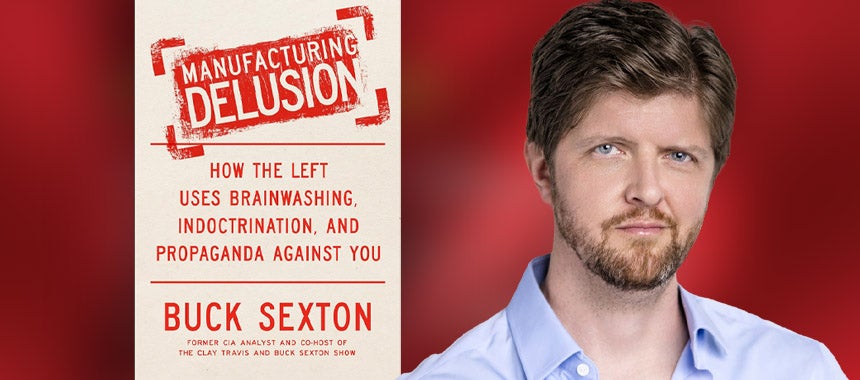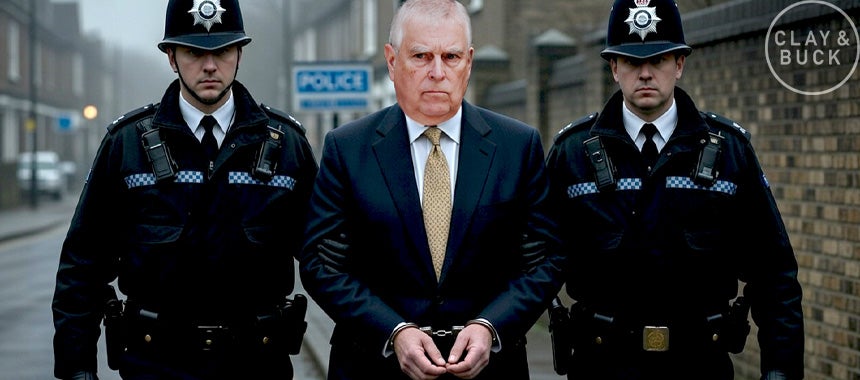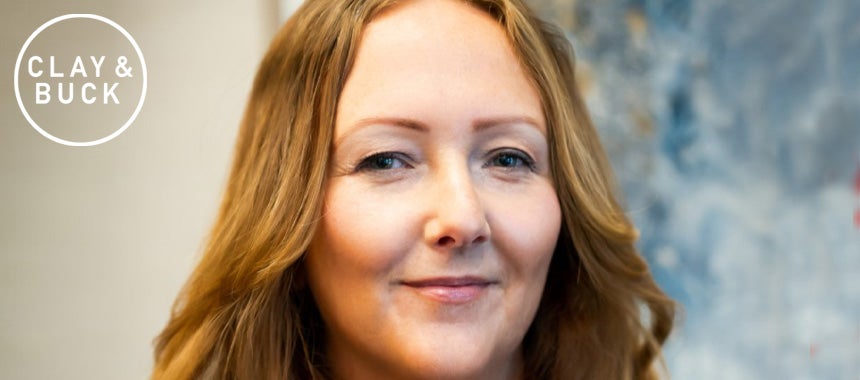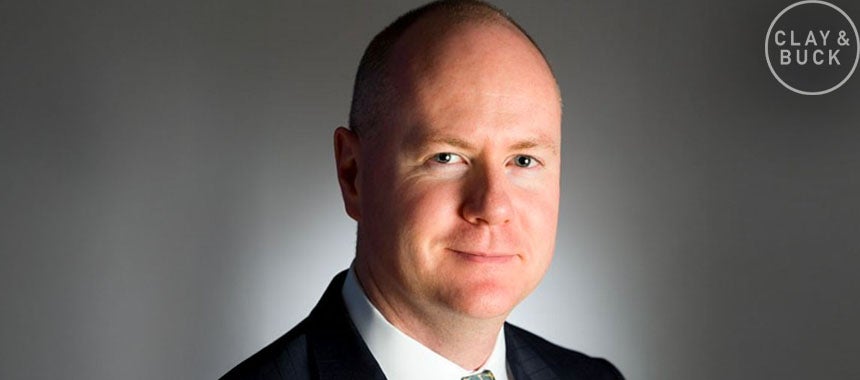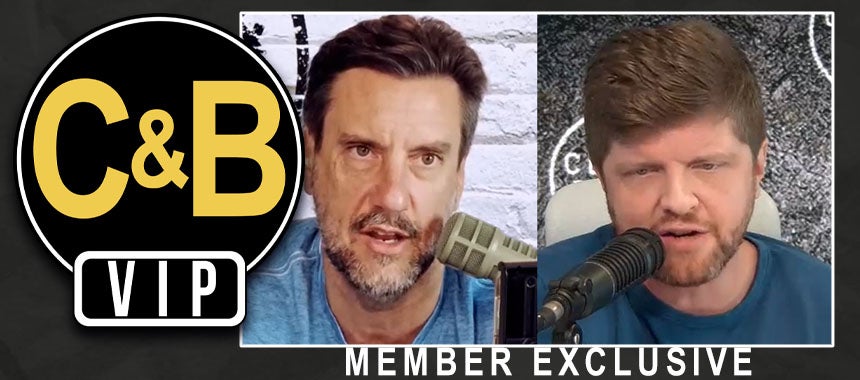How Can We Really Prevent These Horrific Mass Murders?
25 May 2022
CLAY: We begin with the story that everybody is talking about, a shaken country in many ways as a mentally ill 18-year-old took the life of 19 kids, two adults, also shot his grandmother. And everyone is reacting to what happened in Uvalde, Texas.
And we now certainly want to extend as a parent, I walked my kids to elementary school this morning, my kids get out of school today so I’m ducking out to go pick them up as they have a half day for the summer here in the Nashville area, and so I walk my kids to school pretty much every morning. Most days, many days I am picking them up in the afternoon as well. So like all of the parents and grandparents out there who have young children, this is a sickening story.
I am filled, Buck, with questions about this on so many different levels, and my first reaction to all of these stories is, after Columbine and after Sandy Hook, many different schools have put in policies that make it hard to get into a school if someone is armed and is trying to do so.
And I’ll give you an example. At my kids’ elementary school there is an armed police officer there — and, by the way, I personally believe that there should be an armed police officer at virtually every school in America. That is my personal opinion. Some of you may disagree.
I also, in order to get into our building, our elementary school, Buck, you have to show your driver’s license, and you have to be buzzed in through locked doors. And then there is, once you are through there, another door where you have to be buzzed in, and then you also have to be buzzed in from the office. Everybody has to come in through the main entrance of the building.
They can look at you. There’s a camera when you say that who you are and why you’re coming in. If you don’t have your ID, they won’t let you in. They know me. I’ve had three kids to go to this school. Before I’ve forgotten my ID and had to turn around and drive back to go get my ID to be able to be let into the building.
My point on all this — and I hear almost no one discussing it — is I want to know how this guy ended up inside of this school? What protocols were in place that would have kept that from happening? Did they break down? How did he make his way into the building to be able to commit these murders?
Also, Buck, I want to know, was there armed security? We know, at least based on the AP report, that there was a border security guard who basically went in — and we don’t know his name yet — and killed this man and may have saved many lives. But was there other security there? I want to know all the facts before I start demanding action, and we still know a small fraction, it seems to me, of the overall facts.
BUCK: You mentioned that. I think it’s important, especially in the aftermath of these situations when the whole country is reeling with grief to point out that there was a hero on the scene here. And it was a member of Border Patrol. And Border Patrol is law enforcement.
 Border Patrol has a lot — I think about 30% of Border Patrol are former veterans of the United States military, you know, a very honorable service that is critical to this country’s interests and has a lot of good men and women who are serving every day. In this case, a hero who stepped up, I’d be willing to bet he probably just had a sidearm and went up against somebody who had a long gun and was obviously in the midst of a murderous rampage and also had body armor on and he was taken down. So there was a hero who reacted.
Border Patrol has a lot — I think about 30% of Border Patrol are former veterans of the United States military, you know, a very honorable service that is critical to this country’s interests and has a lot of good men and women who are serving every day. In this case, a hero who stepped up, I’d be willing to bet he probably just had a sidearm and went up against somebody who had a long gun and was obviously in the midst of a murderous rampage and also had body armor on and he was taken down. So there was a hero who reacted.
I mean, in the aftermath of this tragedy, obviously the whole country’s heartbroken right now. And it’s one of these moments where you would like to believe, Clay — and, you know, I spoke to Tucker on his show last night about this issue right before Biden’s speech which we’ll go into in a moment.
I think we’d all like to believe as Americans can we just start from the premise that we all think this is absolutely horrifying and we all would want to do whatever is reasonable and possible to stop this or to limit this possibility in the future. And we come from that perspective.
CLAY: Yes.
BUCK: The problem that we have right now, as I see the — again talking about the aftermath. And we can speak more about the details of this — I spent a lot of time when I did counterterrorism analysis looking at — and there were whole parts of that discipline, I mean, in New York City it’s actually the intelligence division that does essentially counterplot work, meaning going after terrorist cells.
There’s CTD, counterterrorism division, all they do, Clay, is hardening soft targets, in this case government targets but all kinds of — that look at what you’re discussing, you know, ingress and egress, points, choke points for where people would have to filter in, things like that, right? So there are things you can do along those lines. There’s obviously are the armed security component of this. And as a country, having that discussion is absolutely called for and worthwhile.
 I just think that what’s deeply disturbing as a — as a political and as an after — you know, in an aftermath component of this, ’cause we all are horrified by what happened, is that it really does seem to me that the Democrat impulse — and I don’t mean from random strangers online. I’m talking about the governor of California, I’m talking about members of Congress — is to turn around and say, “Republicans need to do what I want they would to do because of ideology or else they don’t care about a lot of murdered children.” This is what’s being said.
I just think that what’s deeply disturbing as a — as a political and as an after — you know, in an aftermath component of this, ’cause we all are horrified by what happened, is that it really does seem to me that the Democrat impulse — and I don’t mean from random strangers online. I’m talking about the governor of California, I’m talking about members of Congress — is to turn around and say, “Republicans need to do what I want they would to do because of ideology or else they don’t care about a lot of murdered children.” This is what’s being said.
And I’m not exaggerating what they say. I’m not taking out of context what they say. And my position on this is that it goes beyond that this screaming at the right is obviously not going to solve things. It’s actually counter-solving the situation. It’s actually unhelpful.
It actually makes me angry. It makes me angry that there are people who think — and again I’m talking about the governor of the most populous state in America, Gavin Newsom, talking about other — I think it was a member of Congress who shouted out or tweeted out, I should say, that Ted Cruz is personally responsible for — people just find someone they don’t like and say, “You are responsible for this.”
Anyone who does that is unhelpful and standing in the way of preventing these kinds of atrocities from happening going forward. That is a bad-faith political smear, we all know it. And I think that part of this, Clay, gets — that has gotten worse. That has become now a more universal impulse from the left. Something horrible happens, it’s the fault of the people that I disagree with in politics.
CLAY: That’s what social media has created I think to a large extent is social media is driven by emotion. And people respond emotionally. And understandably when immediate incidents like these occur, my natural reaction is, again, as a parent, I think this is awful.
I cannot imagine, like, any parents out there, anything worse than having a kid that was at a school where something like this occurred. I really can’t. And having to wait there all day and find out whether your kids are gonna be safe or whether they’re not and when you’re told that something — that they’re not, that they may have been murdered, I cannot even imagine that feeling. It is devastating to even comprehend.
But I step back eventually from the immediate emotion and I want to know how do we stop this from happening? And that’s the kind of conversation — first of all, Buck, to my knowledge — you tell me if I’m wrong — I don’t remember — I was in college when Columbine happened. I know we have a huge audience of people listening right now in Denver. And those two shooters at Columbine in the lawsuit in the nineties, if I remember correctly, seemed to have inaugurated in many ways the concept of school shootings, at least in the way that they — the mass school shooter phenomenon.
And so much of this has grown out of the mythologizing and the infamy that we foist upon these mass shooters. And so what own happens is you have a cluster.
I don’t think it’s a surprise that Buffalo happened and then this happens, people with mental illness respond to the actions of other people with mental illnesses who they find in some way find to be heroic which is why I would say one thing — and I think we’re trying to do it on this show but I think larger media because so many people listen to this — we gotta stop making the people who do this heroes.
And the data is pretty clear, the number one thing that media —
 BUCK: Make them famous, you’re saying.
BUCK: Make them famous, you’re saying.
CLAY: Don’t make them famous, don’t share their names, don’t — I mean, you can — you know, the impact of what they have done, I would share the names of the victims, I would share the names of the heroes like this gentleman who we still don’t know from Border Patrol who evidently stormed the school and went in to protect people, ran into danger.
All of those people deserve to have their stories to find, but we should not continue to provide fame to the people who are seeking it. Psychologically seems to be one of the driving forces driving behind what has happened.
And then the second part, Buck, is I want to know how it happened because I want to try to prevent this from happening again in terms of the actual school, how did he get into that school, as you were talking about when you analyzed this and go back through it because I look at through what my schools and my kids have in place and I hope that’s sufficient but I think every school should have that as well as an armed security guard, in my personal opinion.
BUCK: I also think there is a tendency in the aftermath of a shooting like this — we look at this and actually forget — or forget about some of what has happened before historically. And there needs to be a look at the numbers. ‘Cause what I’m saying is people will say, this never happens anywhere else, and then you find out, no, this actually does happen in other — has happened in other countries around the world. We have more mass shootings than other industrialized countries. There’s no question about that but these incidents have happened elsewhere.
People will say we have monsters today in society that we never had before. That’s also not true. Now, we could look at numbers, we can look at trends. But the worst ever school massacre was actually in Michigan in 1927, didn’t involve a gun, it involved a bomb, and you had I think it was almost 40 — I think it was 38 people mostly, almost entirely children, blown up in a school building then.
You mentioned Columbine. Columbine was 1999?
CLAY: That’s right I think it was late nineties. I know I was in college.
BUCK: Yeah, I was in high school at the time. I remember. But Columbine actually came after the Dunblane massacre in Scotland of 1996 where somebody went into a school and just shot as many people as — as many children, students as possible.
So there are monsters among us and there have been, unfortunately, for all of modern history, and all of history depending on where you’re talking about and what the circumstances are of the kind of murders you’re looking at specifically.
So now it’s what does the data tell us about how to bring down the probabilities, the percentages of something like this happening? And I know that can feel in this very emotional moment you think, we’ll do anything — no, we should do what is smart, what would work, what is worthwhile. And it’s not easy.
There’s a whole other component. We could come back and talk about it, Clay. They say, oh, don’t talk about the mental health issue here. It’s about guns. This is what you’re hearing right now. This time you’ll notice, the narrative is very different. We’re not hearing about white nationalism because the shooter is — was Latino. So we’re not hearing about white nationalism as the motive behind this one. So it’s all about guns.
 When you read about this individual, Ramos, who — I am sorry, you said his name.
When you read about this individual, Ramos, who — I am sorry, you said his name.
CLAY: Yeah.
BUCK: His name is out there.
CLAY: Right it’s commonplace because his name is so widely spread which is why I think one of the things to do is to start that trend of this is what the number one thing to do is not make him famous.
BUCK: You read his background in terms of what people thought of him, and he sounds like he was right there with the trench coat Mafia in Columbine. Just the same warning signs, same patterns. And same thing with the Buffalo shooter, by the way, in terms of people knew. Okay. Well, if we know someone seems to be borderline or maybe even fully beyond violent psychopathy, what can we do about that as a society?
And there’s a whole discussion that I think a lot of people — particularly people on the left, as I say, don’t want to have about where are involuntary commitment laws, what are we willing to do? So that’s I think a component of this as well.




